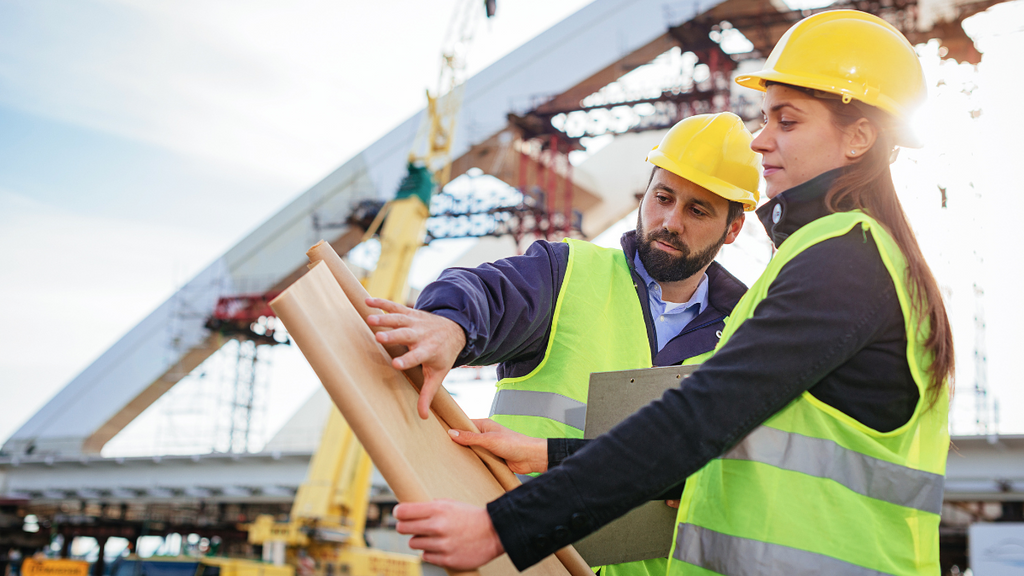All about Geotheta
All about Geotheta
Blog Article
Things about Geotheta
Table of ContentsThe Of GeothetaUnknown Facts About GeothetaGeotheta Things To Know Before You BuyThe Of GeothetaA Biased View of Geotheta

They perform site examinations, accumulate samples, perform lab examinations, and evaluate information to examine the suitability of the ground for building jobs - Geo Tech Engineering. Based on their findings, geotechnical designers offer referrals for structure design, slope security, retaining frameworks, and mitigation of geotechnical threats. They work together with other experts, such as designers, structural engineers, and building groups, to make sure that geotechnical factors to consider are integrated right into the general project design and application
By assessing the habits and residential properties of soil and rock, they can recognize prospective geotechnical dangers such as landslides, soil settlement, or slope instability. Their proficiency helps protect against failures or mishaps that might jeopardize lives and residential property. Right here are some comprehensive tasks and responsibilities of a geotechnical designer: Website Investigation: Geotechnical engineers conduct website investigations to gather information on subsurface conditions.
They interpret the information to understand the buildings and habits of the dirt and rock, including their stamina, permeability, compaction features, and groundwater conditions. Geotechnical Evaluation and Style: Geotechnical engineers analyze the information accumulated throughout website examinations to analyze the stability and viability of the site for building and construction jobs. They execute geotechnical estimations and modeling to examine factors such as bearing capacity, settlement, slope stability, lateral earth stress, and groundwater circulation.
Geotheta Things To Know Before You Buy
Structure Design: Geotechnical engineers play a critical role in making structures that can securely sustain the intended framework. They assess the soil problems and tons needs to identify the proper foundation kind, such as superficial foundations (e.g., grounds), deep structures (e.g (https://www.pageorama.com/?p=geotheta)., heaps), or specialized techniques like dirt improvement. They think about elements such as negotiation restrictions, bearing capacity, and soil-structure interaction to create ideal structure styles
They review building strategies, screen site activities, and conduct field evaluations to validate that the layout suggestions are followed. If unanticipated geotechnical problems emerge, they assess the situation and supply recommendations for remediation or changes to the layout. Danger Analysis and Mitigation: Geotechnical designers evaluate geotechnical risks and threats associated with the job website, such as landslides, liquefaction, or soil disintegration.

Collaboration and Interaction: Geotechnical designers function closely with various other specialists involved in a task, such as engineers, structural designers, and construction groups. Effective interaction and collaboration are important to incorporate geotechnical considerations into the total job layout and construction procedure. Geotechnical engineers supply technical proficiency, response questions, and ensure that geotechnical demands are fulfilled.
Geotheta Can Be Fun For Anyone
Here are some kinds of geotechnical designers: Structure Engineer: Foundation engineers focus on designing and evaluating foundations for structures. They evaluate the soil problems, lots needs, and website qualities to establish one of the most suitable foundation type and layout, such as shallow foundations, deep structures, or specialized strategies like stack foundations.
They evaluate the variables influencing slope stability, such as dirt properties, groundwater problems, and slope geometry, and create approaches to avoid slope failings and alleviate dangers. Earthquake Designer: Quake designers concentrate on examining and creating structures to withstand seismic pressures. They evaluate the seismic hazard of a website, examine soil liquefaction possibility, and create seismic layout criteria to make sure the safety and security and durability of frameworks during quakes.
They do area testing, accumulate examples, and evaluate the gathered information to characterize the dirt residential or commercial properties, geologic developments, and groundwater conditions at a website. Geotechnical Instrumentation Designer: Geotechnical instrumentation engineers concentrate on monitoring and gauging the habits of dirt, rock, and frameworks. They mount and maintain instrumentation systems that check elements such as soil settlement, groundwater degrees, slope motions, and architectural displacements to assess efficiency and offer early cautions of potential problems.
Geotheta Can Be Fun For Everyone
They conduct examinations such as triaxial examinations, consolidation examinations, straight shear examinations, and permeability tests to gather data for geotechnical evaluation and layout. Geosynthetics Engineer: Geosynthetics engineers focus on the style and application of geosynthetic products, such as geotextiles, geogrids, and geomembranes. They use these products to improve soil stability, enhance inclines, supply water drainage remedies, and control erosion.
They have a tendency to be investigative individuals, which implies they're intellectual, introspective, and curious. They are curious, methodical, sensible, logical, and sensible. Some of them are additionally social, suggesting they're kind, generous, participating, client, caring, helpful, empathetic, sensible, and pleasant - Geo Tech Engineer.
In the office environment, geotechnical designers use specialized software application devices to perform computations, produce designs, and examine data. They prepare records, testimonial project specifications, connect with clients and team participants, and coordinate job tasks. The office setup supplies a conducive setting for research study, analysis, and partnership with other experts entailed in the project.
The Best Strategy To Use For Geotheta
They frequently check out task sites to perform site examinations, examine geotechnical problems, and gather data for evaluation. These visits entail traveling to different places, often in remote or challenging terrains. Geotechnical designers may carry out dirt tasting, conduct tests, and display construction activities to make sure that the geotechnical aspects of the project are being carried out appropriately.
Geotechnical designers also operate in specialized geotechnical laboratories. In these hop over to these guys facilities, they conduct experiments, do examinations on soil and rock examples, and examine the engineering properties of the products. Geotechnical laboratory engineers function thoroughly in these atmospheres, taking care of testing equipment, running tools, and taping information. They team up with other lab personnel to ensure exact and reliable testing outcomes.
Report this page